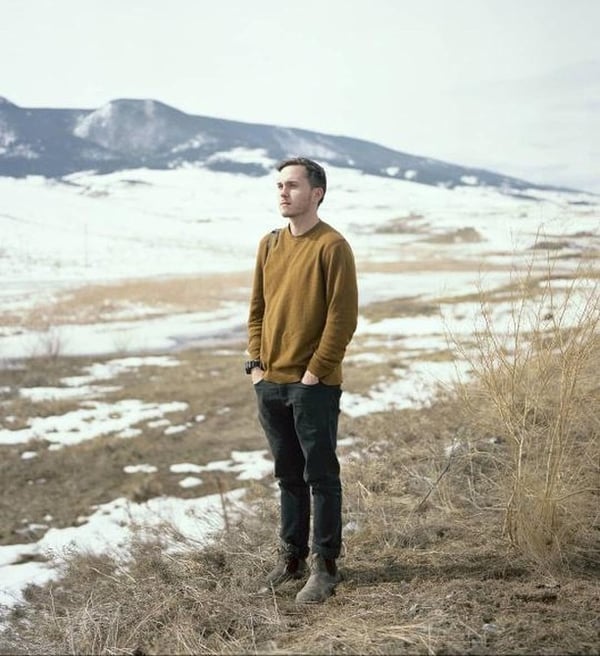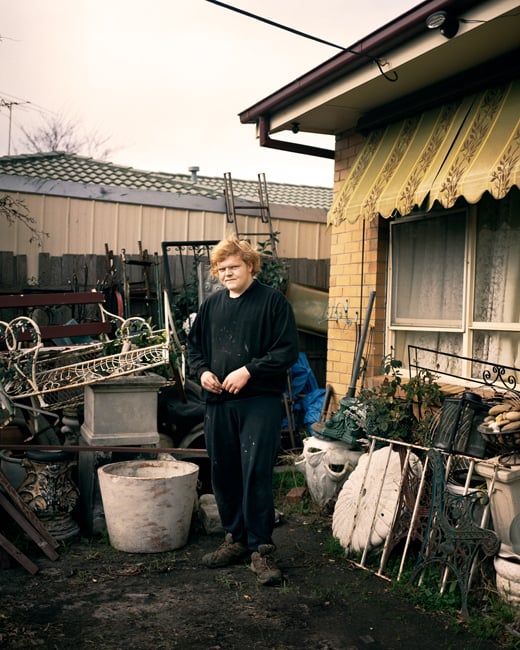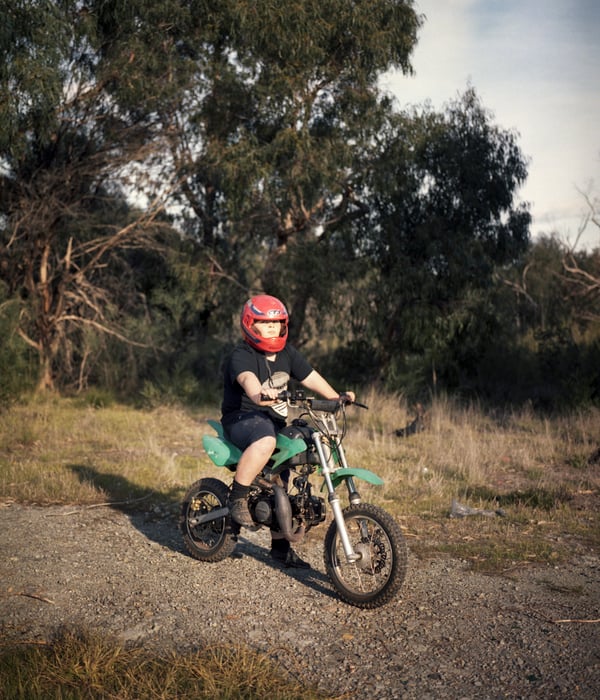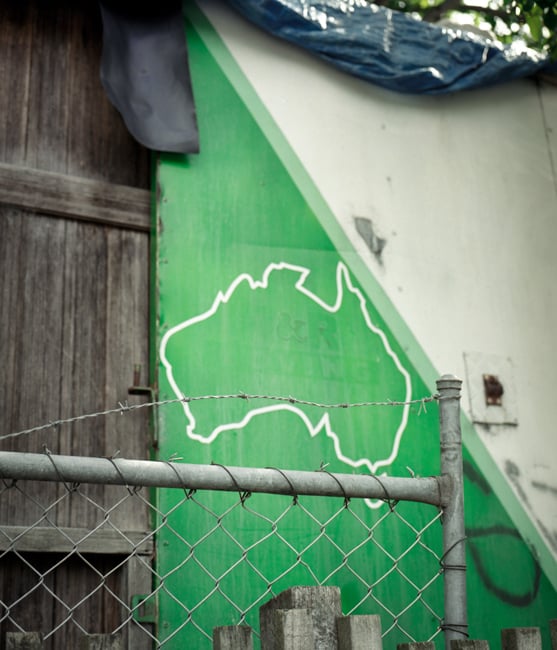PSC graduate James Bugg at the age of 22 won last year's $50,000 Moran Contemporary Photography Prize for his image 'Zach'. Shot on photographic film in the disadvantaged suburb of Frankston North, the portrait struck a chord with the judges for offering a glimpse of modern Australian life rarely visible. We caught up with James to see how the award has impacted his photographic journey and hear his advice to other young photographers interested in documenting contemporary Australia.

Image of PSC graduate and photographer James Bugg by PSC graduate Noah Thompson
It’s been a year since you won the $50,000 Moran Contemporary Photographic Prize 2018 for your image 'Zach', how has it helped you on your photographic journey?
It was definitely a moment of self validation for me. Creative industries sometimes seem to be surrounded by a lingering sense of self doubt so I feel extremely lucky to have been awarded this prize at an early stage in my career. It has really fuelled my passion to make new work, hopefully push boundaries and tell stories which I feel strongly about.
Why do you think your portrait resonated with the judges?
I think that particular image, as well as the wider body of work I had been and continue to create in that area really resonated with the theme of contemporary Australian life. I felt strongly connected to this idea and was fortunate that the judges also related to the image.

James Bugg's 2018 Moran Contemporary Photographic Prize winning image 'Zach'
You were the youngest at 22 to win this prize, what would be your advice to other students your age to entering such awards?
I think the best advice in terms of awards in general is to enter competitions that resonate with your practice and work. As well as this I think it’s easy to get hung up on what judges might ‘want to see’, I think it’s important to enter images that you feel strongly towards even if they might be a little less conventional or push boundaries.
Your winning photo ‘Zach’ is part of a wider series ‘The Pines’ based on a residential area comprising ex-housing commission homes in the outer Melbourne suburb of Frankston North. How did you discover this area and why did you choose to photograph it and the people?
I grew up and went to high school not far from the area so it was always somewhere in my peripheries, and a place I heard a lot about but I never really got to experience. It was a genuine curiosity to return to a place that felt equally close as distant which prompted me to begin making work there. The place itself carries a lot of stigmas so I wanted to make work that looked beyond the surface. I continue to make work in the suburb so it’s always evolving and expanding as I meet more people and learn more about it.

How important was your approach to photographing this community?
I think with all the work I create my number one priority is making sure my subjects are comfortable being photographed. Acknowledging the fact that I am an outsider in the community is the first step to this. I hardly ever have my camera out when I’m meeting people and I try to convey the best I can my passion and interest in telling a story about the place. There will always people who don’t want to have anything to do with me, but for the most part I am met with the enthusiasm and compassion that I try and convey.
Why do you shoot on film?
For the most part when working on longterm projects I shoot on medium and large format film. The main reason for this comes down to the process. Working with a very limited number of frames per roll forces me to slow down, consider and reconsider the images I am making. This suits the way I make work and interact with people and places.

One of the judges praised you for offering a glimpse of Australian Society rarely visible, are you working on bringing to light another underrepresented section of Australian culture?
This is something that my work tends to focus around and something that I’m constantly thinking about. I have a number of longterm projects on the go which will aim to shed more light on these areas of Australian culture. I’m excited to put some time into these over the coming year and hopefully come away with work to share.
Having graduated in 2018, tell us about your experience studying the Bachelor of Photography at Photography Studies College?
PSC was an incredible environment which really fed my passion to make photographs. The people I got to meet and the photography that I was introduced to was constantly inspiring me and pushing me to make work which was considered. The opportunities which the college provided and encouraged were incredibly valuable and continue to be valuable in shaping the way I make and view photography today.
